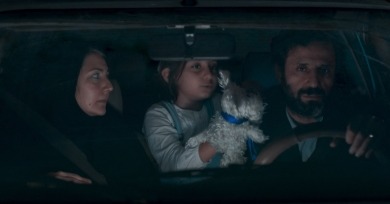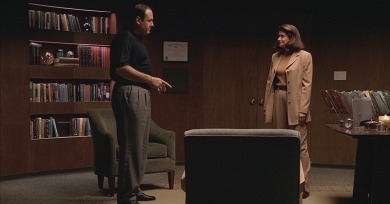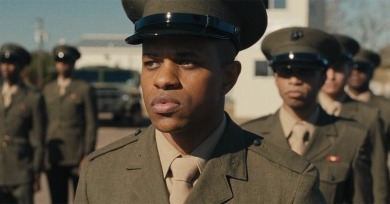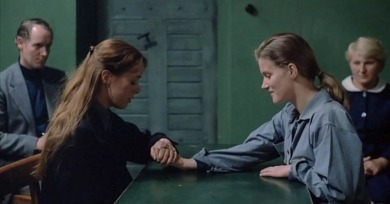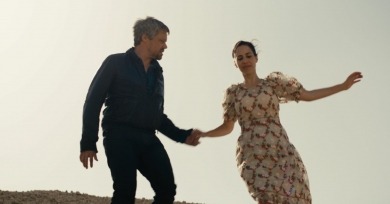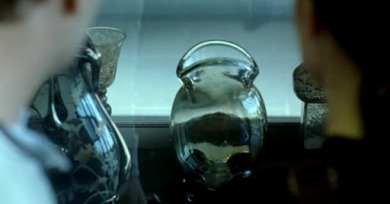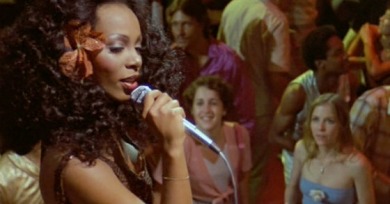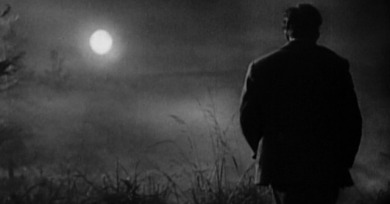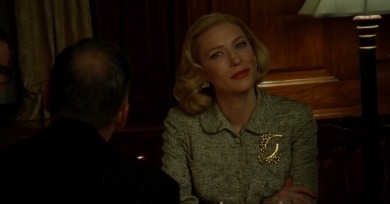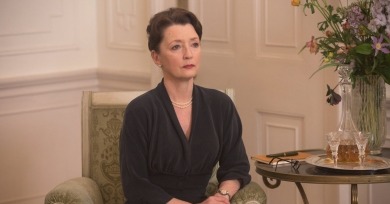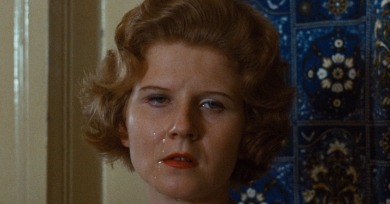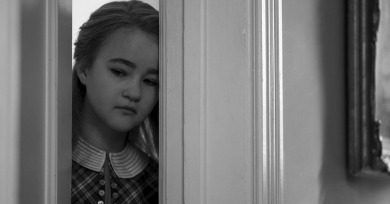Chris Wisniewski
If the cinema of Jafar Panahi has evolved over the past 30 years, partly because of changing circumstances, one can also draw a through line. These movies have much in common—starting with the fact that they are uniformly excellent, challenging, and engaged.
By revisiting The Sopranos as one of the definitive moving image works of this century, I may be trying to say that my journey as a cinephile over these past 20 years has involved a growing acceptance that cinephilia itself has become a destabilized and unsustainable category, an antique of the 20th century.
The specter of ephemerality hangs over the exquisitely beautiful and moving The Taste of Things, a movie that is simultaneously about food in every possible sense and also not at all, one that treats the acts of cooking and eating with reverence while recognizing in them an entry point to something more profound.
Throughout the film, Ellis will justify his decision to join the military in terms of the meaning it will confer on his life, a meaning that is otherwise absent, it seems, because he lacks ties to bind him to anything outside of himself.
The dialectic between the two characters aptly captures the internal schisms of the 1970s western left, but von Trotta never reduces the women or their relationship to an intellectual exercise. This is a film of ideas with a wounded human heart.
With Ahed’s Knee, writer-director Nadav Lapid returns—with a vengeance—to his native Israel after his 2019 detour to Paris with Synonyms, and with its predecessor, Ahed’s Knee shares traces of autobiography.
Frédéric senses that a vase highly sought after by one of the world’s leading museums would carry the same value—albeit sentimental—for Éloïse. But he is wrong. He mistakes his own values for others’ and for market values.
Two strange musicals from the 1970s—featuring Catherine Deneuve and Donna Summer—help our writers find pleasure in the perverse.
The Brattle, the Castro, and NYC’s great repertory screens, including its crown jewels, Lincoln Center’s Walter Reade and the Sumner Redstone Theater at Museum of the Moving Image. Right now, they’re just empty rooms, but they are also the settings for some of my life’s most profound, moving, and transformative artistic experiences.
Haynes is a brilliant, sometimes cerebral filmmaker who can nevertheless make us feel to our core the desperate isolation and the constant threat to the self that society imposes on those it casts in the role of Other.
Bong makes it clear from the film’s opening minutes that this is a movie about class. But what that means—and how that plays out through the Kims’ efforts to achieve a higher station—is never settled, perhaps, until the last shot.
The movie calls on her to disrupt its stillness and austerity, to whirl in with frantic phrases and abrupt movements. She is that frazzle of golden hair, the rush of light bursting in that also brings chaos to order. The balloon floats, but she crashes in.
The accomplishment of Roma is experiential. Its attention to sound, setting, and how bodies and things occupy space have the effect of radically aligning the viewer to a particular perspective that is fully located within the narrative world of the film.
A tale of romantic obsession and fetishistic desire, Phantom Thread interrogates the need of a dysfunctional man to remake and control a woman, but then flips that somewhat tired script.
It’s all over in the space of a few seconds, but everything about it is “off.” The sequence feels wrong because of the length of the takes. These few seconds of screentime, fleeting though they are, take too long to unfold.
Here, queerness is not figured along the lines of sexual orientation or gender identity so much as the otherness that comes with being differently abled and, even more immediately, with a sense of loss.
Assayas seems to have conceived this film as several genre pieces in one (a pseudo horror, a psychological thriller, a melancholy drama about grief), but each of these strands, incomplete in its way, serves a grander and fully realized purpose in the larger ontological excavation of Maureen.
In real classrooms and on real film shoots, there remains an inevitable tension between the roles that certain figures who exercise authority must play and the principles and aspirations that guide some of our most progressive teachers and moviemakers.
In a political moment fraught with racist and xenophobic attitudes toward the immigrants who live and work in our neighborhoods and cities, In Jackson Heights plays as rebuke and antidote.
Iñarritu’s legitimate claim to being the creative father of Birdman aside, and whatever Keaton or its screenwriters brought to the project, Birdman feels, from start to finish, like an Emmanuel Lubezki film.
